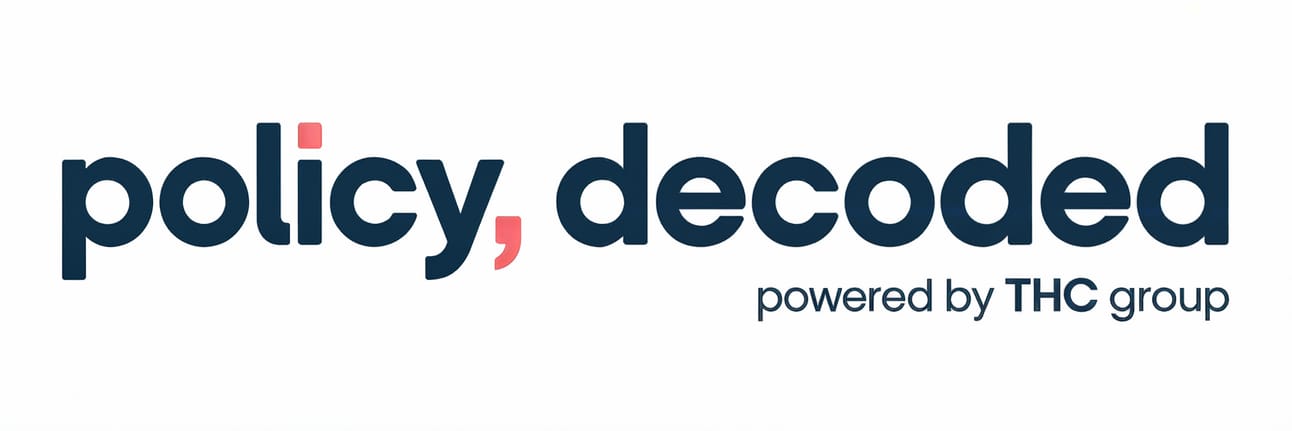Built by a former cannabis regulator, Policy, Decoded is your no-fluff, high-signal daily briefing for operators, investors, and policymakers who don’t have time to be surprised by the news cycle.
No Decoded Insight today - and that’s not an oversight. The story isn’t in a grand shift. It’s in the steady, relentless churn: Nebraska scrambling toward a medical framework without legalization, North Carolina weighing whether hemp belongs under cannabis rules, California leaving its tax problem unsolved (again), and Thailand walking back legalization entirely. It’s a day for reading the map, not rewriting it.
☕ Read it with your morning coffee.
📈 Reference it in your strategy meeting.
📬 Forward it to your compliance lead.
Start smarter. Move faster. Stay ahead.

Start here — the day’s most important development, decoded for impact.
📌 What Happened:
For the first time, the U.S. House has passed an amendment allowing VA doctors to recommend medical cannabis to military veterans in states where it’s legal (Marijuana Moment). The bipartisan measure passed comfortably as part of the broader appropriations bill. It repeals a longstanding policy that blocked VA physicians from discussing or recommending cannabis, despite state-level legality and ample patient demand.
The bill still needs to clear the Senate, but momentum is growing. Paired with a second amendment expanding psychedelics research for veterans, this marks one of the most significant federal cannabis votes since the Farm Bill.
💡 Why It Matters:
This is a turning point for medical cannabis policy. Not just because it cracks open the VA system, but because it signals something much bigger: once federal agencies formally recognize cannabis as a therapeutic option, the door opens to broader medical integration - potentially including insurance reimbursements for clinical visits and, eventually, products. It’s also a signal that veteran healthcare is being positioned as the policy test bed for cannabis normalization at the federal level.
But the industry, and policymakers, should proceed carefully. Veterans deserve access to every effective treatment available. What they don’t deserve is to become the country’s unwitting clinical trial for cannabis medicine done on the cheap, without full regulatory, safety, and medical infrastructure in place.
🧠 THC Group Take: This is more than an access bill. It’s the start of federal cannabis integration into healthcare. Quietly; piece by piece. If VA doctors are allowed to recommend cannabis, the next logical questions are already forming: Does that trigger reimbursement for clinical consultations? Does it open the door to product coverage down the line? The medical cannabis industry should be preparing for that shift - operationally, legally, and financially.
At the same time, there’s a real caution embedded here. Veterans cannot become the testing ground for a federal cannabis policy that isn’t yet ready for prime time. If this expansion happens without adequate quality control, clinical standards, and product oversight, it risks delivering harm alongside help, and risks fueling a regulatory backlash when inevitable failures hit the front page.
For operators, this is a signal to get serious about pharmaceutical-grade manufacturing, evidence-based claims, and compliance systems that can stand up to federal scrutiny. Because whether or not the Farm Bill solves hemp, federal medical cannabis is officially in motion.

